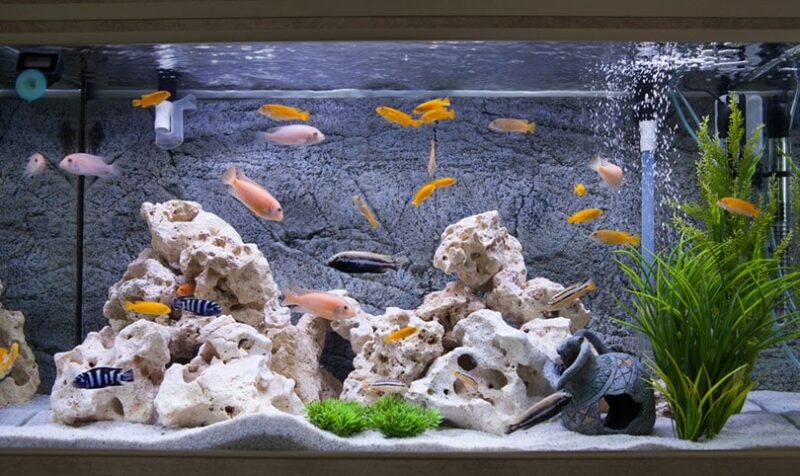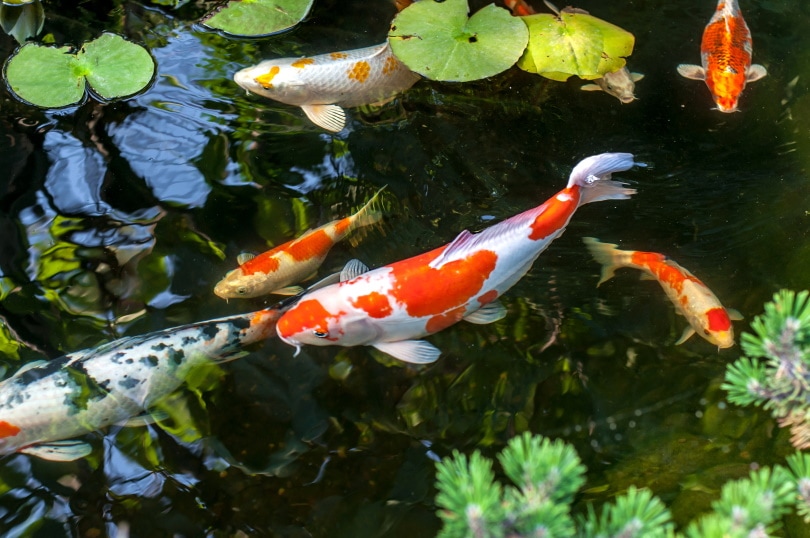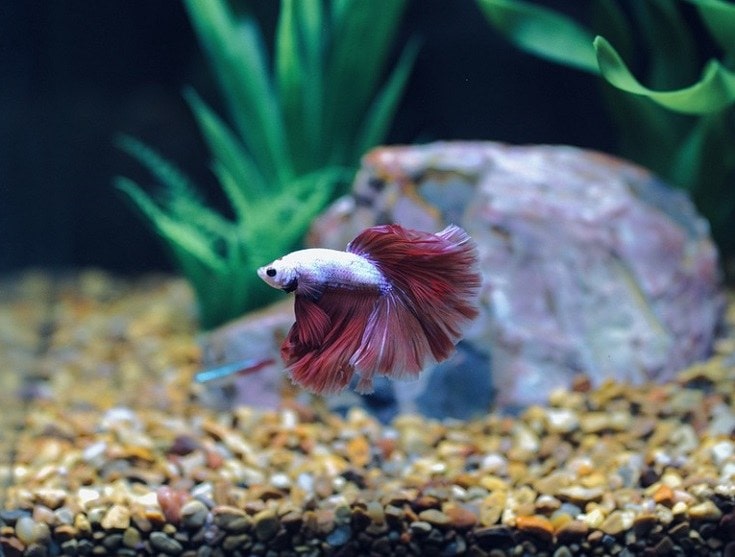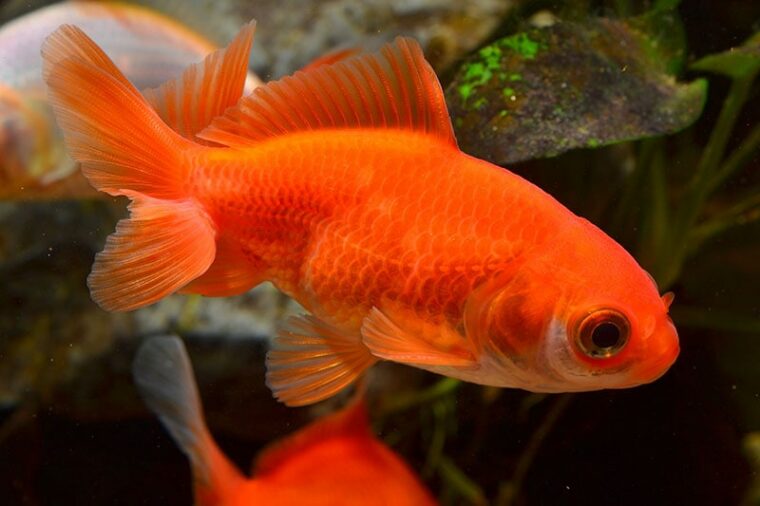
With millions of fish being adopted as pets every year, you can easily say that keeping pet fish is a popular hobby. One of the reasons why is likely because interacting with fish and aquariums is scientifically proven to reduce anxiety and improve your health and well-being.1
When your fish stops eating, determining why can be challenging depending on the fish you keep, your tank setup, and the filtration system you use. We’ll discuss 6 reasons why your fish isn’t eating and what you can do to resolve the issue.
The 6 Possible Reasons Your Fish Isn’t Eating
1. You’re Giving Your Fish Too Much Food
One of the most common mistakes aquarium owners make is to give their fish too much food. A fish that’s eaten enough isn’t going to eat more, even if you feed them 10 times a day. However, putting too much food in your fish’s tank can foul the water and cause your fish to be overfed and ignore their food.
Aquarists recommend feeding your fish only what they can eat in a few minutes, or better yet, determining their exact requirements (based on factors such as their weight, size, water temperature, and so on). Also, depending on the food, you should scoop out anything left over before it falls to the bottom. Doing this will prevent water quality issues that can cause your fish to stop eating.
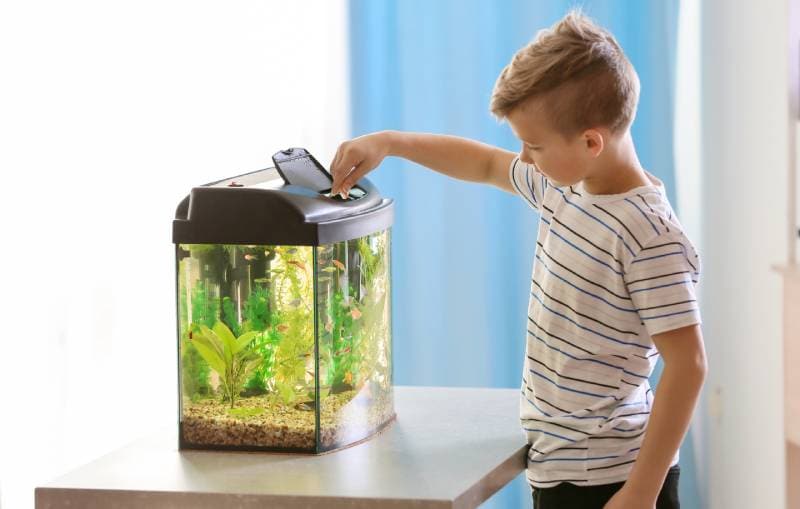
2. The Food You’re Feeding Your Fish Isn’t the Right Kind
Fish that are herbivores will show no interest in live prey, insect larvae, or meat-based treats. Likewise, a carnivore would show little interest in vegetables or an algae wafer. It’s important that you feed your fish a diet that’s appropriate for them based on their nutritional requirements and dietary requirements.
3. Your Aquarium Is Overcrowded With Fish
Overcrowding a fish tank can have several adverse effects on your fish, including stopping them from eating. For example, if you put docile fish with aggressive fish, the docile fish might be bullied at feeding time and stop coming around when you feed them. Also, various species of male fish can become territorial and aggressive as they get bigger. It’s better to have fewer but healthier fish and put species that get along well together in your tank.

4. A Health Issue Is Affecting Your Fish
Several illnesses and fish diseases can affect aquarium fish and cause them to stop eating. If an illness or health issue is the problem, you’ll need to do a few things to solve it. The first is to isolate the ill fish from the main tank and put it in a quarantine aquarium until they get better. Then, you can consult your veterinarian to determine exactly what’s happening and how to help your fish best. Some of the most common fish illnesses include the following:
5. Your Aquarium’s Filter Isn’t Doing a Good Job
Most water quality issues occur when the tank’s filter isn’t powerful enough to keep the water clean. One of the problems you’ll see is that your fish stop eating because they’re too busy trying to survive the harsh environment.
What you need to keep in mind is that your fish eat, sleep, communicate, and breathe in your tank’s water, and many species are highly susceptible to even slight changes in the water’s quality. Some of the problems that an inadequate filtration can cause include the following:
The solution to this problem is usually a partial water change, adding live plants, additional filtration, reducing tank stock density, and an upgrade in tank size. Often, multiple solutions must be combined.

6. The Temperature Is Fluctuating in Your Tank’s Water
Unless your aquarium is exposed to direct sunlight or high airflow, water temperature fluctuation usually isn’t a problem. If it is, the usual culprit is your tank’s water heater. Whatever the cause, temperature spikes in your aquarium’s water can cause your fish to stop eating, sometimes temporarily or sometimes for days.
If, for example, the water in your aquarium is too hot, your fish can become hyperactive and not want to eat. On the other hand, if the water is too cold, it can slow down your fish’s metabolism and cause a loss of appetite. Whatever’s causing the temperature spike needs to be addressed and corrected. That includes purchasing a new water heater if your current one isn’t functioning correctly.
Please note: A sudden fluctuation in temperature can be very detrimental (often lethal) to fish. Therefore, any temperature issues should be resolved promptly
Final Thoughts
There are several reasons why the fish in your aquarium aren’t eating, including overfeeding, overcrowded conditions, and, worst of all, dirty aquarium water. Most problems that cause aquarium fish to stop eating are easy to correct, but some are more difficult.
If you’ve tried changing the filter and some of the other suggestions above, and your fish still isn’t eating, contact your veterinarian. They can tell you what’s happening, what to do about it, and help you save your fish before you find them floating in your tank.
Featured Image Credit: JuanCarlosPalauDiaz, Shutterstock


